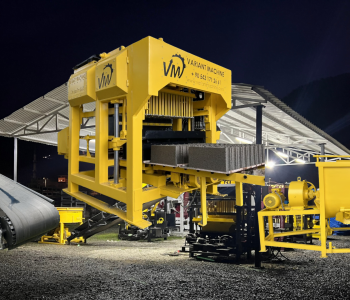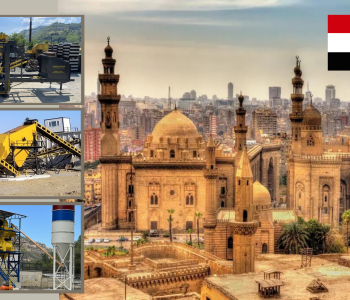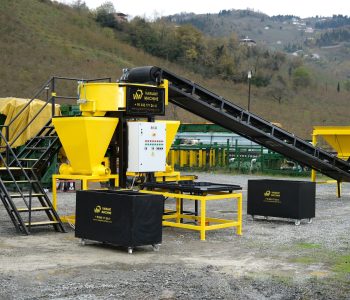Nairobi: A Modern Metropolis Shaped by Innovation in Construction
Introduction:
Nairobi, Kenya’s capital, is a city that embodies rapid urban growth and dynamic change. As the city expands, modern construction technologies play a crucial role in addressing its infrastructure needs. This article delves into Nairobi’s history, recent developments, and explores how concrete block machines, including egg-laying machines, as well as mobile and stationary concrete batching plants and crushers, are shaping the city’s future.
- Nairobi: A Brief History and Recent Developments
City Overview:
Founded in 1899 as a railway depot, Nairobi has transformed from a modest colonial outpost into one of Africa’s most vibrant and rapidly growing cities. Its name, derived from the Maasai term “Enkare Nairobi” (cool water), reflects its historical importance as a key trading and transport hub.
Over the years, Nairobi has evolved into Kenya’s political, economic, and cultural heart, characterized by a mix of contemporary skyscrapers and traditional markets. The city’s urban landscape is continually reshaped by ongoing development and modernization efforts.
Current News:
Recent headlines highlight Nairobi’s ambitious infrastructure projects and sustainability initiatives:
- Transportation Upgrades: The city is investing in expanding and modernizing its public transportation system, including new roads and transit networks to ease traffic congestion.
- Green Building Initiatives: Nairobi is pushing for environmentally friendly construction practices, integrating sustainable materials and energy-efficient technologies.
- Economic Expansion: With a growing economy, there is an increased demand for commercial and residential development, driving significant construction activity across the city.
- The Construction Sector in Nairobi
Growth and Demand:
Nairobi’s construction sector is booming, fueled by rapid urbanization and economic development. The demand for new housing, commercial spaces, and infrastructure projects is driving the need for advanced construction technologies.
Challenges:
- Infrastructure Strain: The rapid growth of the city has placed a strain on existing infrastructure, necessitating substantial upgrades and new developments.
- Sustainability Issues: Balancing development with environmental sustainability remains a key challenge, requiring innovative solutions in building practices.
Opportunities:
- Technological Advancements: The integration of modern construction technologies presents opportunities for more efficient and sustainable building practices.
- Investment Potential: Continued investment in construction and infrastructure projects is poised to boost economic growth and enhance urban living conditions.
- Key Construction Technologies in Nairobi
Concrete Block Machines:
Overview:
Concrete block machines are pivotal in Nairobi’s construction sector, particularly for large-scale projects requiring high-volume block production. These machines are designed for efficiency and precision, making them essential for major residential, commercial, and infrastructure developments.
Features and Benefits:
- High Production Capacity: Machines are capable of producing a large number of blocks per hour, which is crucial for handling the demands of large-scale construction projects.
- Precision and Quality: These machines ensure high precision in block dimensions and strength, resulting in consistent quality and reliability in construction.
- Versatility: They can produce various types of blocks, including solid, hollow, and interlocking, catering to diverse construction needs.
- Durability: Designed for heavy-duty operations, block machines are robust and built to withstand long-term, intensive use.
Concrete Batching Plants:
Mobile Concrete Batching Plants:
Overview:
Mobile concrete batching plants offer flexibility and convenience, making them ideal for construction projects in Nairobi that require frequent relocation or have varying concrete demands. These plants are designed to be easily transported and set up at different sites.
Features and Benefits:
- Portability: Mobile batching plants can be moved to various locations, facilitating on-site concrete production and reducing transportation costs.
- Efficiency: Equipped with comprehensive batching, mixing, and delivery systems, these plants streamline the concrete production process and ensure high efficiency.
- Adaptability: Suitable for small to medium-sized projects, mobile batching plants adapt to different project requirements and locations, enhancing operational flexibility.
Stationary Concrete Batching Plants:
Overview:
Stationary concrete batching plants are built for high-capacity, continuous concrete production. They are well-suited for large-scale and long-term projects in Nairobi that require consistent and high-quality concrete.
Features and Benefits:
- High Production Capacity: These plants can handle large volumes of concrete production, making them ideal for major infrastructure projects like highways, bridges, and large commercial developments.
- Precision and Consistency: Stationary plants provide precise control over the batching process, ensuring the uniform quality and performance of the concrete produced.
- Durability: Built for long-term operation, stationary batching plants are durable and capable of managing extensive production demands.
Crushers:
Mobile Crushers:
Overview:
Mobile crushers are versatile and designed for ease of transport, making them suitable for on-site crushing tasks across various locations in Nairobi. They are commonly used in construction and demolition projects for processing and recycling materials.
Features and Benefits:
- Portability: Mobile crushers can be relocated easily between different sites, reducing the need for material transport and accelerating the crushing process.
- Versatility: They can crush a wide range of materials, including concrete, asphalt, and rock, making them useful for recycling and material processing.
- Efficiency: By performing crushing operations on-site, mobile crushers streamline project workflows and reduce overall costs.
Stationary Crushers:
Overview:
Stationary crushers are designed for high-capacity and continuous crushing operations, ideal for large-scale mining, quarrying, and construction projects in Nairobi that require robust and reliable equipment.
Features and Benefits:
- High Capacity: Stationary crushers are capable of processing large volumes of material, making them suitable for extensive aggregate production.
- Precision and Consistency: They offer precise control over material size and quality, ensuring consistency in the output and reliability in production.
- Durability: Designed for heavy-duty use, stationary crushers are built to withstand demanding operational conditions and provide long-term performance.
Conclusion
Nairobi’s rapid urban growth and modernization are closely linked to advancements in construction technologies. Concrete block machines, mobile and stationary concrete batching plants, and mobile and stationary crushers are integral to meeting the city’s infrastructure demands. These technologies enhance efficiency, quality, and adaptability in construction, supporting Nairobi’s dynamic development and sustainability goals. As the city continues to expand, these innovations will be key in shaping its future and improving urban living.



